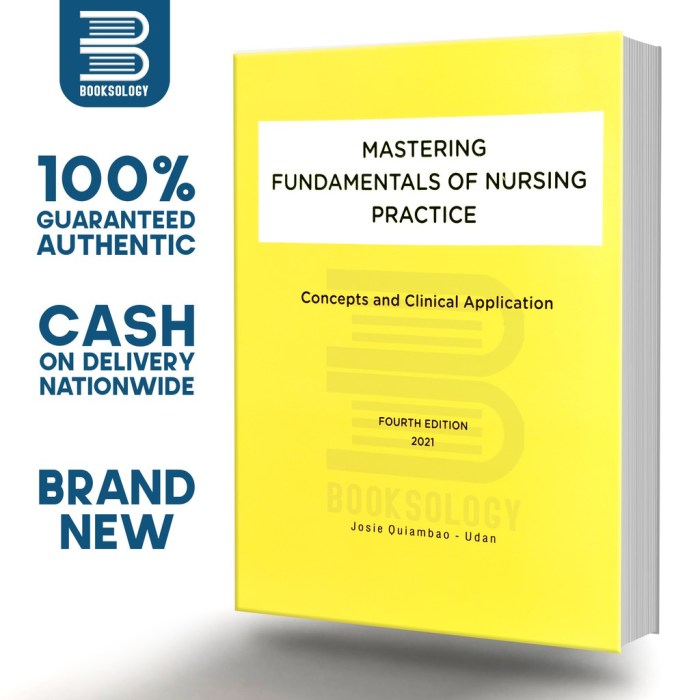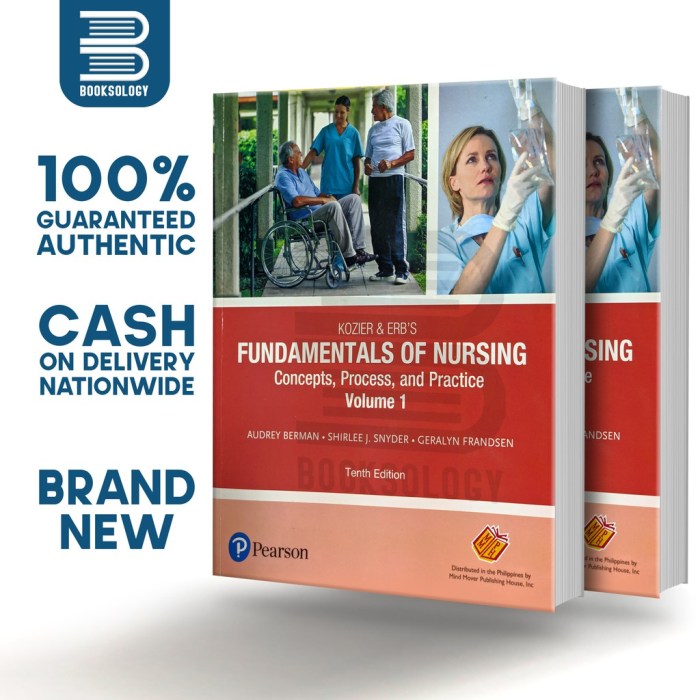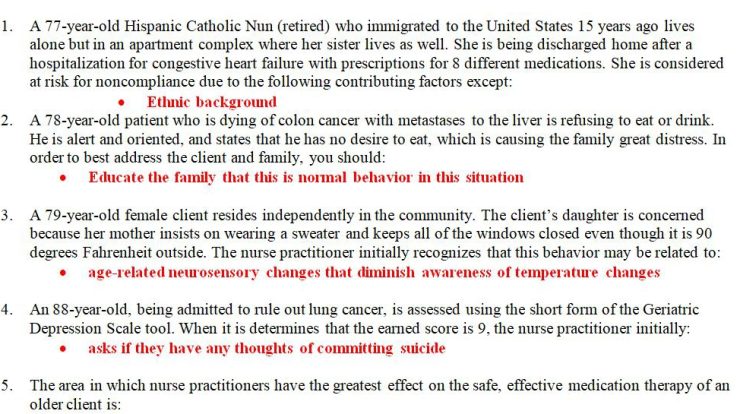Fundamentals of Nursing 4th Edition is an indispensable resource for nursing students and practitioners, offering a comprehensive and up-to-date exploration of the core concepts and practices of nursing. This revised edition provides a thorough grounding in the historical evolution, scope, and significance of nursing fundamentals, equipping readers with the knowledge and skills essential for delivering exceptional patient care.
Throughout the book, readers will delve into the nursing process, effective communication strategies, patient assessment techniques, and evidence-based nursing interventions. The text also covers medication administration, vital signs monitoring, infection control, wound care, and patient education, providing a holistic understanding of the nurse’s role in promoting patient health and well-being.
Nursing Fundamentals

Nursing fundamentals are the core principles and practices that form the foundation of nursing care. They encompass the knowledge, skills, and attitudes that enable nurses to provide safe, effective, and compassionate care to patients.
The scope of nursing fundamentals is vast, covering a wide range of topics, including patient assessment, nursing interventions, medication administration, vital signs monitoring, infection control, wound care, patient education, and more.
The historical evolution of nursing fundamentals has been shaped by societal changes, technological advancements, and the development of new nursing theories and models.
Nursing Process
The nursing process is a systematic, individualized approach to patient care that guides nurses in providing safe and effective interventions.
- Assessment:Gathering data about the patient’s health status, needs, and preferences.
- Diagnosis:Identifying the patient’s actual or potential health problems.
- Planning:Developing a plan of care that Artikels the specific interventions to be implemented.
- Implementation:Carrying out the plan of care.
- Evaluation:Assessing the effectiveness of the interventions and making necessary adjustments.
The nursing process is an iterative and dynamic process that is continually reassessed and modified as the patient’s condition changes.
Communication in Nursing
Effective communication is essential for nurses to provide safe and patient-centered care.
Different types of communication used in nursing include:
- Verbal communication: Speaking and listening
- Nonverbal communication: Body language, facial expressions, and gestures
- Written communication: Charting, reports, and emails
Strategies for improving communication with patients, families, and healthcare team members include:
- Using clear and concise language
- Being respectful and empathetic
- Actively listening to the patient’s perspective
- Using effective nonverbal cues
Patient Assessment
Patient assessment is the systematic collection and interpretation of data about the patient’s health status.
Different methods of patient assessment include:
- Health history: Asking the patient about their past and present health
- Physical examination: Inspecting and examining the patient’s body
- Diagnostic tests: Ordering and interpreting tests to assess the patient’s health status
The documentation of patient assessment findings is essential for communication among healthcare providers and for monitoring the patient’s progress.
Nursing Interventions
Nursing interventions are actions taken by nurses to prevent, treat, or manage a patient’s health problems.
Different types of nursing interventions include:
- Independent interventions: Actions that nurses can perform without a physician’s order
- Dependent interventions: Actions that nurses perform under the direction of a physician’s order
- Collaborative interventions: Actions that nurses perform in collaboration with other healthcare providers
The principles of planning and implementing nursing interventions include:
- Prioritizing interventions based on the patient’s needs
- Delegating tasks to appropriate personnel
- Monitoring the patient’s response to interventions
- Evaluating the effectiveness of interventions
Medication Administration
Medication administration is a critical aspect of nursing care that requires accuracy and safety.
The principles of safe medication administration include:
- Verifying the patient’s identity
- Verifying the medication order
- Calculating the correct dose
- Administering the medication by the correct route
- Monitoring the patient for adverse effects
Different routes of medication administration include:
- Oral
- Intravenous
- Intramuscular
- Subcutaneous
The documentation of medication administration is essential for patient safety and legal purposes.
Vital Signs and Monitoring, Fundamentals of nursing 4th edition
Vital signs are physiological measurements that provide information about the patient’s overall health status.
Different types of vital signs include:
- Temperature
- Pulse
- Respiration
- Blood pressure
Monitoring vital signs is essential for detecting changes in the patient’s health status and for evaluating the effectiveness of interventions.
Infection Control
Infection control is a set of practices designed to prevent the spread of infections in healthcare settings.
Different methods of infection control include:
- Hand hygiene
- Personal protective equipment (PPE)
- Environmental cleaning and disinfection
- Isolation precautions
The role of the nurse in preventing and controlling infections is critical, as nurses are often the first line of defense against the spread of infection.
Wound Care
Wound care is the management of wounds to promote healing and prevent infection.
Different types of wounds include:
- Abrasions
- Lacerations
- Puncture wounds
- Surgical wounds
The management of different types of wounds involves:
- Cleaning the wound
- Applying dressings
- Monitoring the wound for signs of infection
- Changing dressings as needed
Patient Education
Patient education is the process of providing patients with information about their health condition, treatment, and self-care.
Different methods of patient education include:
- Verbal communication
- Written materials
- Audiovisual aids
- Online resources
The evaluation of patient education is essential for ensuring that patients understand their health condition and are able to follow their treatment plan.
Top FAQs: Fundamentals Of Nursing 4th Edition
What is the scope of nursing fundamentals?
Nursing fundamentals encompass the core knowledge, skills, and attitudes that form the foundation of nursing practice. They provide a comprehensive understanding of the nursing process, patient assessment, nursing interventions, medication administration, infection control, wound care, and patient education.
How does the nursing process guide individualized patient care?
The nursing process is a systematic and individualized approach to patient care that involves assessment, diagnosis, planning, implementation, and evaluation. It enables nurses to tailor interventions to the specific needs of each patient, ensuring comprehensive and effective care.
What are the key principles of safe medication administration?
Safe medication administration involves the “five rights”: right patient, right medication, right dose, right route, and right time. Nurses must adhere to strict protocols and guidelines to prevent medication errors and ensure patient safety.


